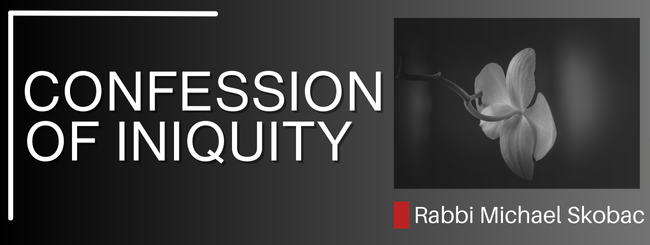“And they shall confess their iniquity and the iniquity of their fathers in their treachery which they committed against Me…I will also walk contrary to them…” (Lev. 26:40-41).
If they will confess their sins, why will they still be deserving punishment? The Binah L’Ittim explains that confession that is not accompanied by repentance is not accepted. We see this in the text: “If they confess their iniquity…in the treachery which they committed against Me” – meaning that they make their confessions in the midst of their treachery, without desisting from their sins.
This kind of confession itself is sinful and deserving of punishment.
During Yom Kippur, one of the sins mentioned in the Vidui, the long list of sins confessed, is: The sin that we have committed before You with the confession of the mouth. This means that the confession was limited to the words uttered, but it never translated into changed behavior. Confessing without repentance is itself a sin.
By Rabbi Michael Skobac
Follow the link for more “Verses from Tenach”
More of Rabbi Michael Skobac
© Copyright, all rights reserved. If you enjoyed this article, we encourage you to distribute it further.
Our blogs may contain text/quotes/references/links that include copyright material of Mechon-Mamre.org, Aish.com, Sefaria.org, Chabad.org, and/or AskNoah.org, which we use in accordance with their policies.
